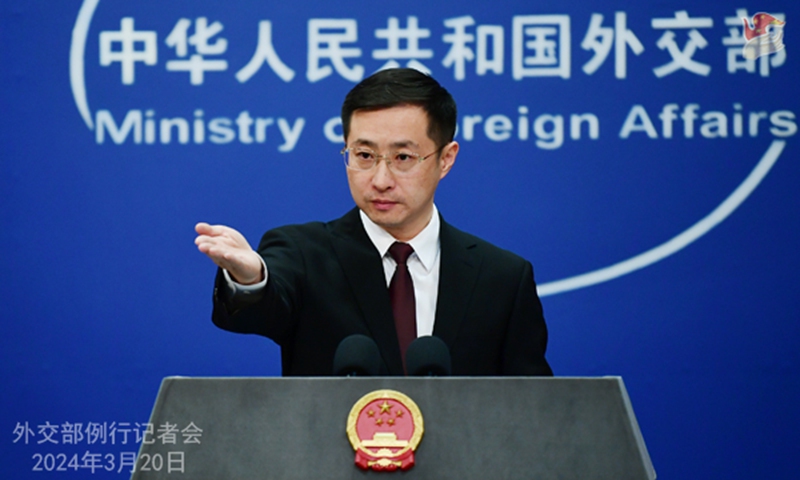
Chinese Foreign Ministry spokesperson Lin Jian. Photo: China's Foreign Ministry
China firmly opposes the US' unilateral and hegemonic moves to turn undersea cables into a political and security issue, and it vows to continue defending the lawful and legitimate interests of Chinese companies, Chinese Foreign Ministry spokesperson Lin Jian said on Tuesday, noting that China pledges to support the international community in conducting undersea cable cooperation under the principles of fairness, justice, equality and inclusiveness, as the US' drafted "New York Joint Statement" is reportedly set to be signed in the margins of the United Nations General Assembly (UNGA) during Sunday to Wednesday.
The response followed a report by POLITICO saying that the US was preparing the joint statement with the EU and other US allies, which could exclude Chinese companies from the global supply chain of submarine communications cables, seeking to enforce supply chain and data security measures and mandate security incident reports.
The US has in recent years blatantly contravened international rules and business operation models, built a small yard with high fences targeted at China in the field of undersea cables, and kept abusing state power to go after and suppress Chinese companies, products and technologies, Lin stated.
The fact that the US advocates the signing of such an exclusive joint statement on undersea cables during the UNGA says everything about its ill intention, the spokesperson said.
Excluding Chinese firms - known for their high-quality products and efficient maintenance - would weaken the industry's capacity to build and maintain undersea cables, Xiang Ligang, director-general of the Beijing-based Information Consumption Alliance, told the Global Times on Tuesday.
China's expertise in managing undersea cables is significant, and pushing the country's firms out of the market could lead to more vulnerabilities, according to Xiang.
Global competition in the industry enhances security and stability, and monopolization by a few Western countries may negatively affect the overall safety of the infrastructure, Xiang said.
Undersea cables are typical international infrastructure for civilian uses, which bear on global cyber connectivity and the wellbeing of people around the world. China firmly opposes the US turning undersea cables into a political and security issue, which severely disrupts international market rules, threatens global digital connectivity and cybersecurity, and denies other countries, especially developing countries, the right to develop their undersea cable industry and independently choose undersea cable suppliers, Lin said.
Global Times




